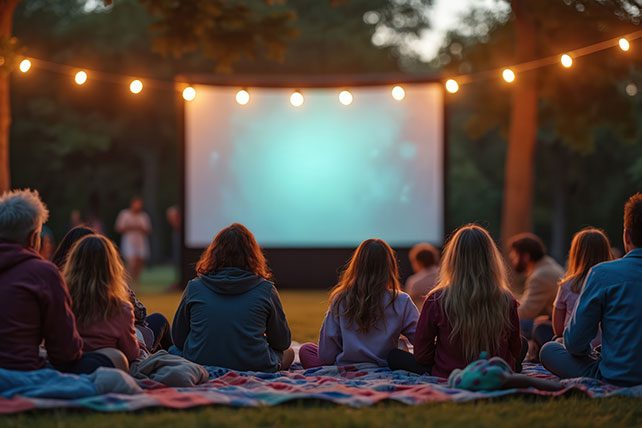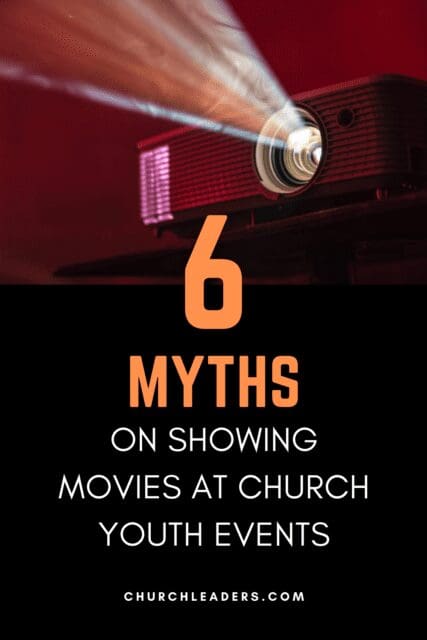Can a church show a movie for free? Most ministry workers ponder that question at some point. Learn the facts by reading about copyright laws.
Copyright laws apply to churches, so you need to know the ins and outs. During my years in youth ministry, I’ve moved through this progression with copyright laws and movies:
- intentional ignorance on the legal matter
- learning a little but then not caring too much
- taking the issue pretty seriously
Long ago, when everyone was rocking Napster (the illegal predecessor to napster.com), I began researching why violating music copyright laws was so bad. Hopefully, we’re all on board with that by now. But that got me thinking about other copyright laws. People still ask can a church show a movie for free.
As a representative of Christ and my church, I must play by the rules. Not only does that help me live a life “above reproach.” It also prevents me from stealing.
Can a Church Show a Movie for Free?
Here are six common misperceptions about copyright law and how it applies to churches.
1. The FBI warning says I can’t charge money for people to watch the movie, so my event is okay.
The FBI warning actually does pertain to an individual showing a movie within the home.
2. As long I’m using the movie at a church event, I’m within copyright laws.
This is false. A movie may be screened outside a home without a license only in a nonprofit educational setting with “face-to-face instruction.”
3. If I make a lesson out of the movie, I’ll be within copyright laws.
A nonprofit educational setting is specifically defined as a nonprofit academic institution. The main activity of a church is not academics.
4. My church has the CVLI, so we can show movies at any event we hold.
This license pertains only to a church showing movies “in its facility(ies).” This means if you have a current CVLI (Church Video License), you may show any legally obtained movie in your church property. (See points 1 and 4 on this page at CVLI.com.)
CVLI covers those movies “produced and/or distributed by CVLI affiliated motion picture companies only,” according to point 6. This means your CVLI license doesn’t cover all films. So you may need to purchase a license to show certain films.
You may be able to contact the motion picture company for written permission to show the movie. Then, if that company holds the copyright, it can waive its rights and grant a church permission to show the movie. Warning: Do this well in advance, because the process is s-l-o-w.


